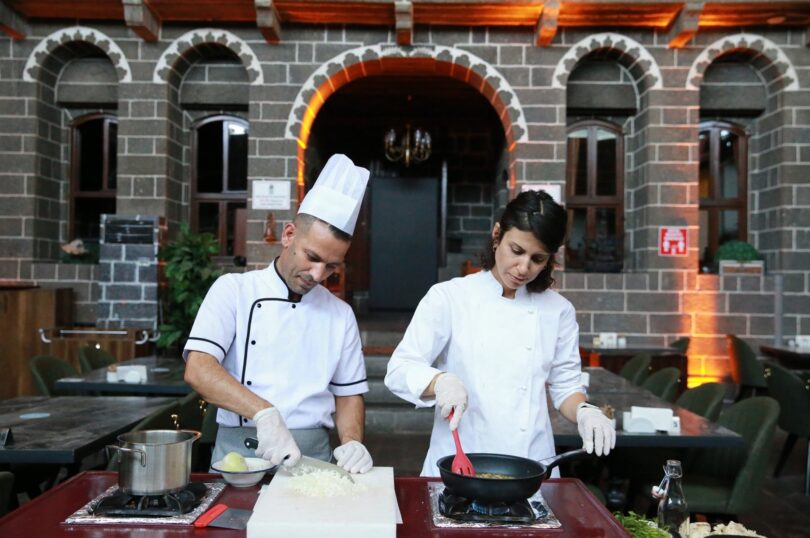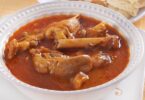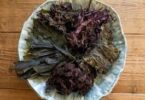DIYARBAKIR (AA) : A history teacher in southeastern Türkiye’s Diyarbakır successfully transformed traditional local delicacies of the region into vegan dishes.
Being a vegan herself during her tenure as a teacher in Istanbul, Zeynep Olgun decided to recreate traditional local recipes using plant-based ingredients to satisfy her longing for her hometown’s cuisine.
For example, Olgun substituted water for eggs in the dough of içli köfte (stuffed bulgur balls) and utilized a filling comprising onions, oyster mushrooms, parsley, and spices. In her version of lahmacun (Turkish flatbread with toppings), she opted for seasonal vegetables instead of ground meat and prepared it with pan-fried eggplants.
When preparing sour dolma (stuffed vegetables) and sarma (stuffed grape leaves), Olgun replaced meat and ground meat with seasonal vegetables, fresh herbs, and a rich blend of spices, enhancing the flavors with olive oil. She cooked the dolma in sumac-infused water, adding a tangy twist to the dish.
Olgun shared her expertise in vegan cooking while preparing these dishes in the Saklıkonağ neighborhood of Diyarbakır.
“When you’re a vegan, you often miss dishes that traditionally include meat. So, I started contemplating how to make these meals vegan-friendly,” Olgun explained, adding that she also had her friends taste her experiments, which they highly appreciated.
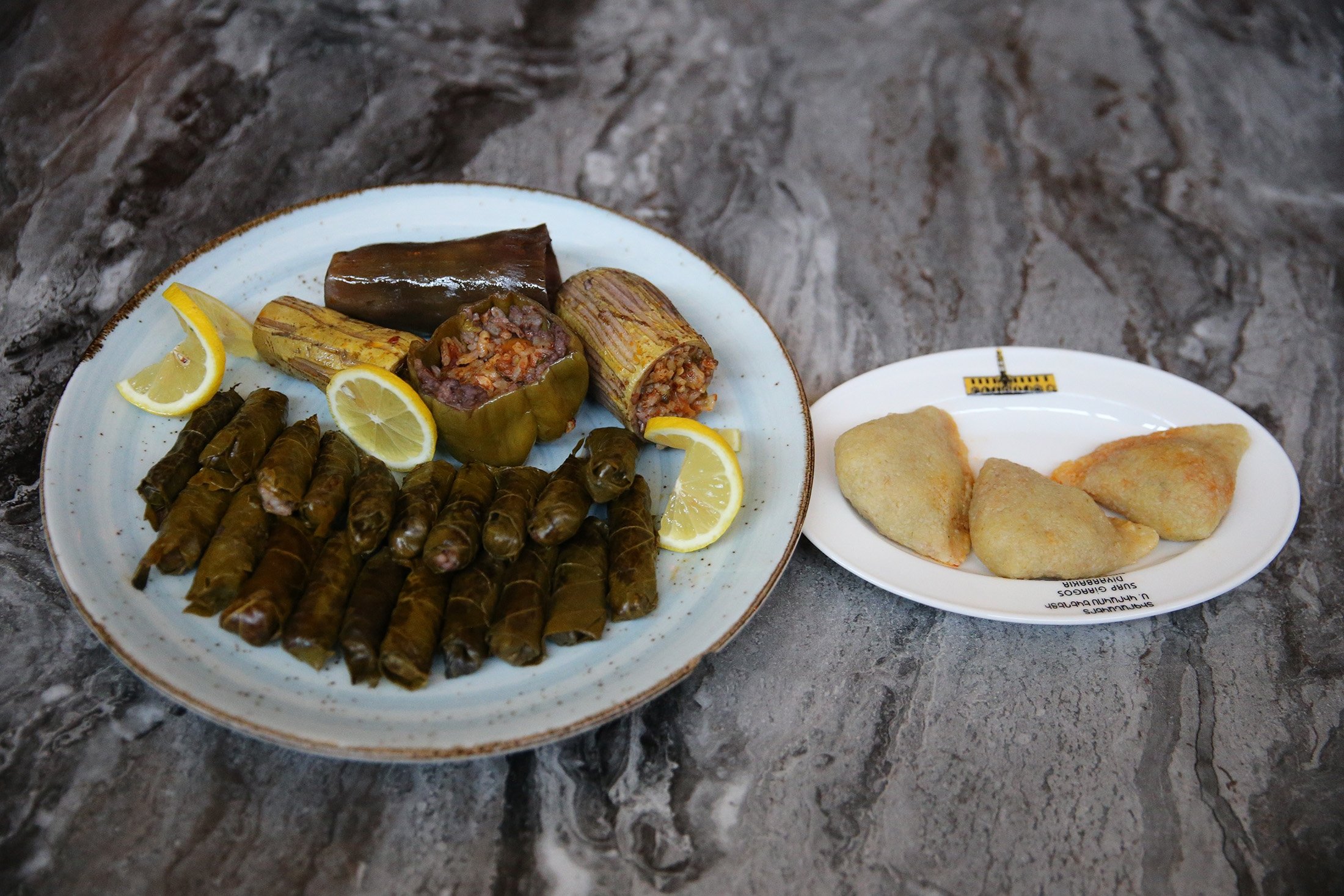
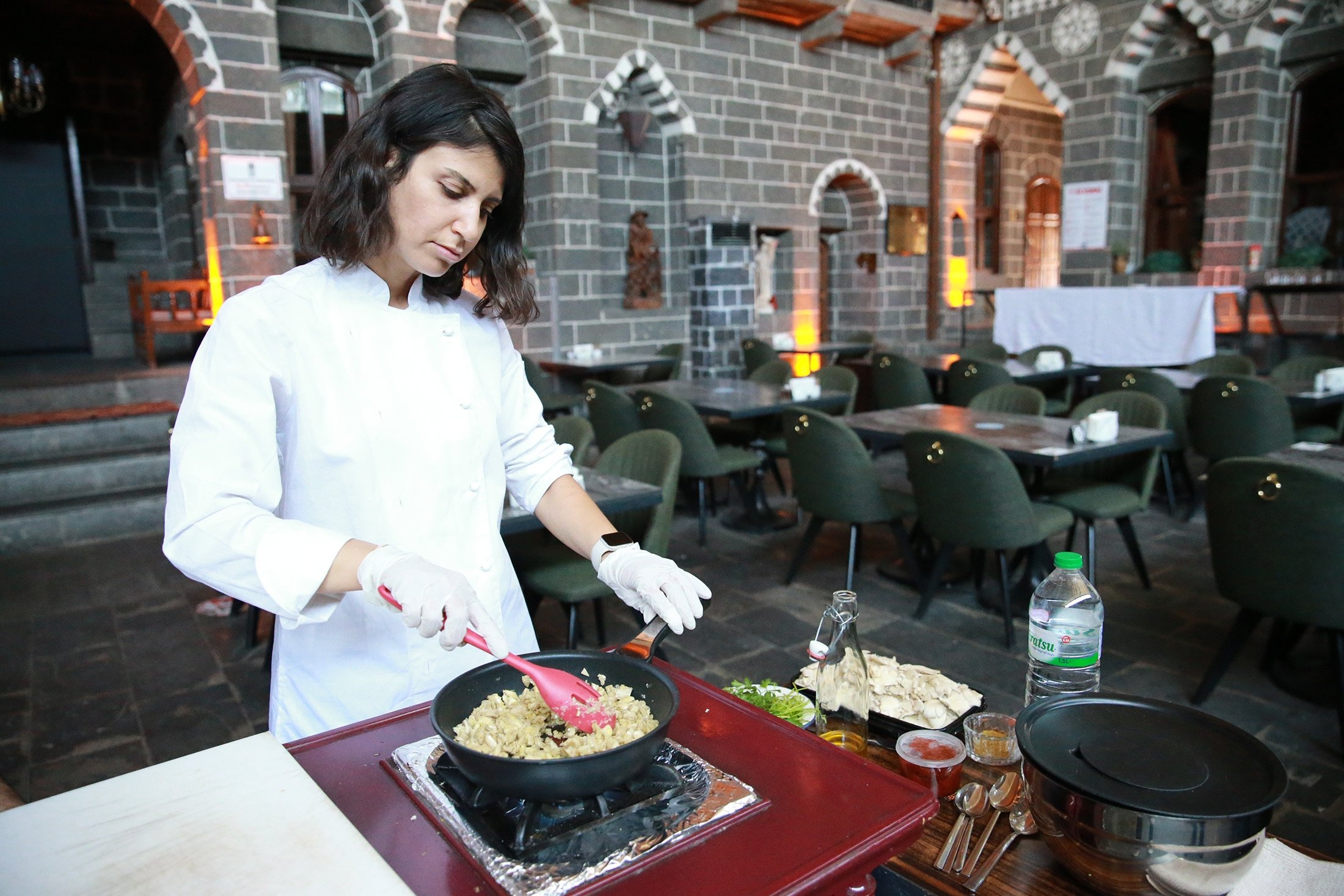
Emphasizing Diyarbakır’s rich culinary heritage, Olgun expressed her commitment to reinterpreting the local cuisine with a plant-based twist.
“When people think of Diyarbakır cuisine, they usually associate it with meat-based dishes. What I’m doing is an attempt to adapt Diyarbakır cuisine with global variations. I replace meat with alternatives such as mushrooms, chickpeas, lentils, walnuts, and eggplants,” she said.
“I have adapted sarma, lahmacun, and içli köfte for vegans. The only difference is the ingredients we use. I choose alternatives to meat, based on seasonal availability and vegetables that complement the flavors.”
Olgun confessed that her strongest yearning while following a vegan diet was for the renowned Diyarbakır-style liver kebab. However, she devised a solution by marinating chestnut or oyster mushrooms with the same spices used for the traditional dish and grilling them to recreate the flavors she missed. “This way, I can satisfy my craving for liver kebab,” she added.
Having an ambition of establishing her own vegan cuisine brand, Olgun also mentioned her ongoing projects involving her students at the school where she teaches including one focusing on içli köfte made with “kenger,” a local plant.
“We aim to consider both the global changes and dynamics while preserving the distinct taste of our region. It’s challenging to alter people’s palates and habits. However, I believe I have succeeded in doing so at home. My children enjoy the dishes I prepare, thinking they contain meat.”
Olgun’s innovative approach to veganizing traditional Diyarbakır cuisine showcases the intersection of cultural heritage and contemporary dietary choices, contributing to the growing popularity of plant-based alternatives in the culinary world.

